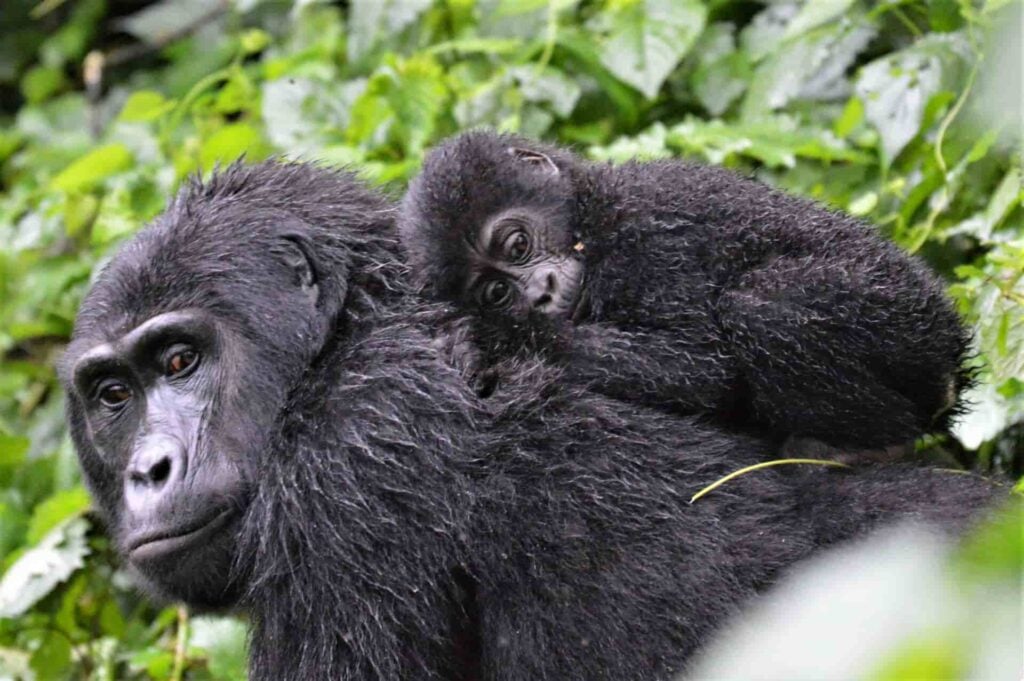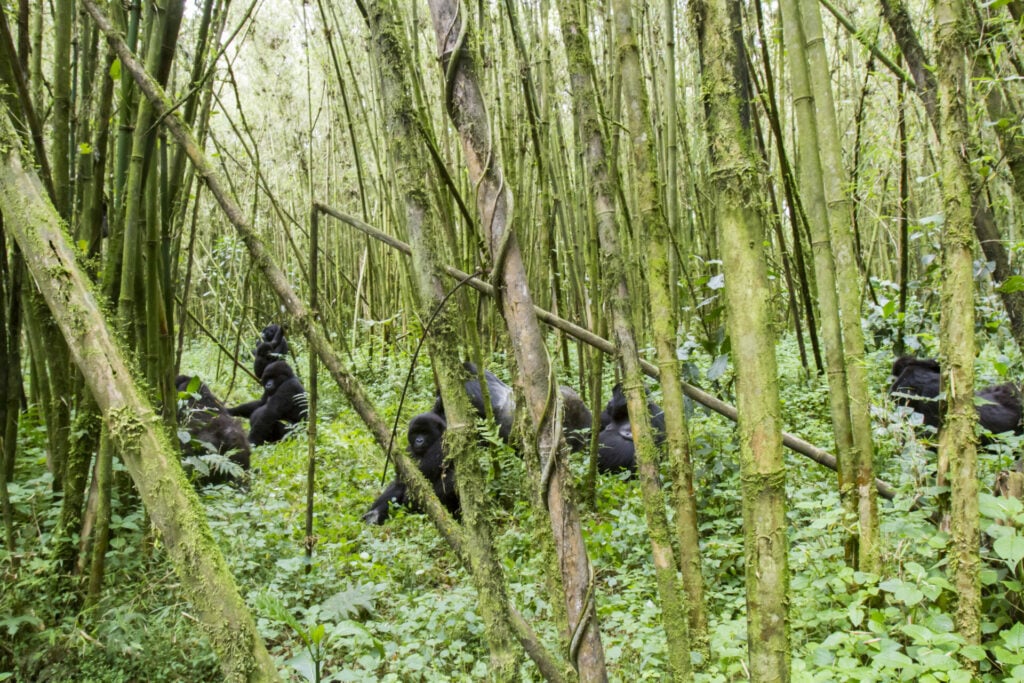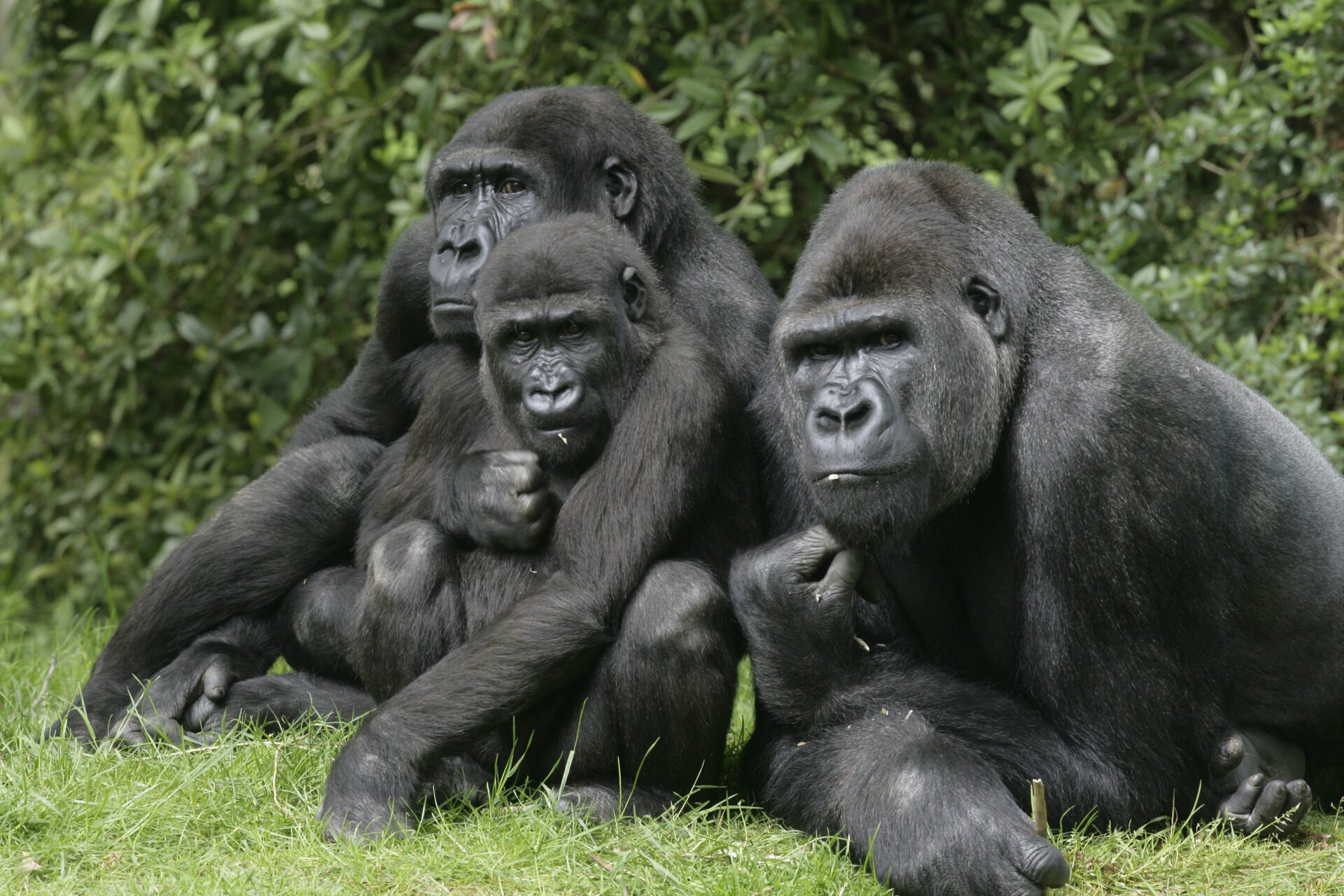Female mountain gorillas are showing scientists just how important friendships can be in the animal kingdom.
They look out for other female members of their species they have lived with in the past when moving to a new social group, in order to smooth social interaction.
The research, carried out by the University of Zurich and the Dian Fossey Gorilla Fund, followed gorillas for over 20 years in Volcanoes National Park, and published in Proceedings of the Royal Society B, monitored multiple groups of wild mountain gorillas in Rwanda for 20 years and found females do not disperse randomly.
It’s common for animals to leave their birth group to join another in a process known as dispersal, which plays a key role in avoiding inbreeding, spreading gene diversity and shaping social relationships.
Researchers looked at 152 dispersals from 56 females and found females avoid males they grew up with when moving and looked for females they already knew.

‘Because female mountain gorillas do not know with certainty who their fathers are, they might rely on a simple rule like “avoid any group with males I grew up with” as the likelihood of them being related will be higher than with males they did not grow up with,’ said lead author Victoire Martignac, a PhD student from the University of Zurich in Switzerland.
Female Bonds Shape the Lives of Mountain Gorillas
Researchers discovered female gorillas can move multiple times and will become familiar with males in each group, but when they move what seemed to matter more was the presence of females they had lived with before.
‘Going into a new group could feel pretty scary, with individuals usually entering at the bottom of the social hierarchy. A familiar female might help reduce this, providing a social ally,’ said Dr Robin Morrison, senior author on the study.
‘It could also act like a recommendation from a friend – if a female they know has chosen to stay in this group it could indicate positive things about the group as a whole or the dominant male leading that group.’

The study also found female gorillas gravitated towards other females they had spent at least five years with and those they have seen in the last two years.
Researchers say this movement shows gorillas relationships, like humans, extend beyond group boundaries.
‘This mirrors a key aspect of human societies: the existence of strong ties between different social groups,’ added Martignac.
‘As humans, we’re constantly moving across jobs, cities and social groups. We do it so effortlessly that we forget how unusual this flexibility actually is within the animal kingdom. This is a reminder of the meaningfulness of social relationships kept across boundaries and how this extended network of relationships might have played a key role in the evolution of larger and more cooperative societies.’









